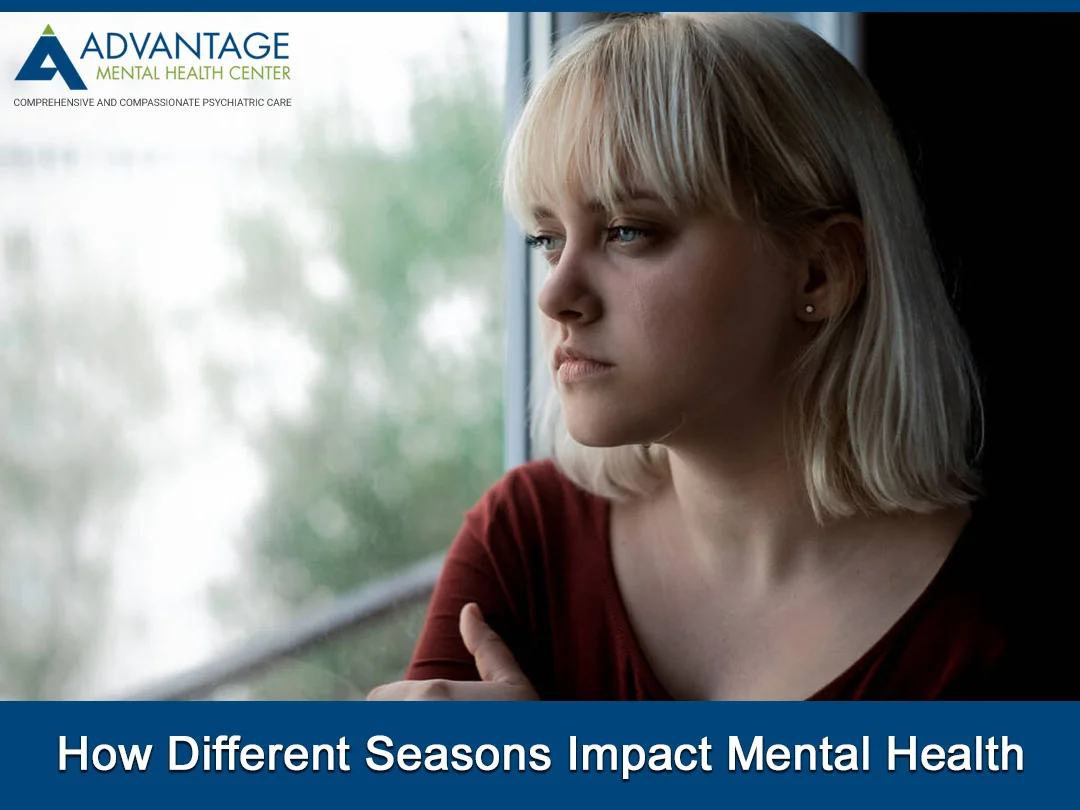You might notice that the way you feel changes throughout the year, seemingly for no reason. The status of our mental health can often depend on external factors, such as weather conditions in Clearwater or the seasons we’re going through.
Colder and wintery weather can often exacerbate symptoms of mental health conditions such as depression and anxiety, and Daylight Saving Time (DST) can make the days feel darker and colder for many people.
Let’s consider some of the ways that different seasons can impact mental health.
The Impact of Sunshine
Sunshine can impact many areas of our health, including mental health. Our bodies use direct sunlight to create Vitamin D, which is a critical vitamin for the overall function and performance of the body and mind. Vitamin D helps to regulate phosphate and calcium in the body and promotes healthy bone and joint function. As well as the physical health benefits, studies suggest that Vitamin D can help to boost low moods and combat the symptoms of depression and other mental health conditions.
Therefore, a reduction in sunshine or sun exposure can create a deficiency in Vitamin D and potentially worsen the symptoms of mental health conditions. To combat this, people living in areas without much exposure to the sun should take supplements, either all year round or during the months when the sunlight is lowest.
The Impact of Exercise
When the weather isn’t suitable for exercise, we can feel uninspired to move our bodies and get physical. This can apply to all types of weather – from warm climates to cold and snowy conditions. If we don’t feel comfortable putting our bodies under physical pressure, we’re less inclined to choose to exercise on a regular basis.
Exercise is very important for health and well-being and can help to relieve stress as well as boost overall physical and mental performance. No matter what season it is, finding time to exercise can help to relieve many symptoms of common mental health conditions like depression and anxiety. If it’s too hot or cold to go outside, consider indoor exercises such as yoga and strength training. There are many ways that you can adapt physical exercise for the seasons you’re living through.
The Impact of Light and Dark
Reduced exposure to sunlight and daylight can cause your serotonin levels to drop, and this can result in changes to your mood and emotions. As well as impacting your mood, serotonin plays a role in digestion, bone health, and libido. When the days become darker and shorter, you may notice a change in your mood and overall well-being. For people suffering from depression, this may become worse when the days are darker and the seasons are colder.
Investing in therapy lamps and trying to get outside during the lighter hours of the day can help to combat some of the worsened mental health symptoms that can occur during these seasons. While you may not be able to find a complete cure during all seasons of the year, looking for the right type of support for you can go a long way in alleviating the impacts of some of the dark days.
Get Help for Your Mental Health
Whether you’re experiencing difficulties all through the year or throughout one specific season, getting the right type of support for your mental health is important. You can find dedicated support in Clearwater, FL, from Advantage Mental Health Center. Feeling supported and finding somebody to talk with can help you to get through some of the most challenging days when you’re struggling due to depression and seasonal mental health conditions.
Picture Credit: VistaCreate


